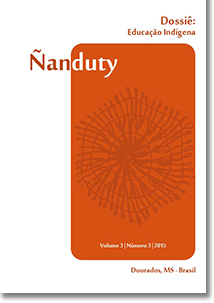Resource conflicts between Landholders and Indigenous People in Mato Grosso do Sul, Brazil: policies, sources and consequences in a historical perspective
Abstract
This contribution aims to point out central aspects of resource conflicts between extensively producing landholders and the Guarani Kaiowá population of the Brazilian state of Mato Grosso do Sul. The focus lies on the crucial role of indigenous reservations, both as consequences and as sources of resource conflicts and on the policy frameworks, which have, historically and presently, evoked violent clashes between these parties. Additionally, the lack of resources within these reservations will be addressed in relation to generational factors. Mato Grosso do Sul designates a crucial region for the Brazilian agribusiness and export sector given its production of cattle, soy, sugarcane and bio-ethanol. Due to the establishment of large-scale landholding entities in the form of ranches and plantations, its landscape experienced a profound transformation from predominant woodland to steppe land in the course of the last century. In this context, the indigenous population of the region, mostly Guarani Kaiowá, was gradually dispossessed of its land and forced to live on a small fraction of their traditionally occupied area, in order to make room for export oriented agro-industries. With the aim of clearing the land from indigenous inhabitants, the Brazilian government established eight reservations in the beginning of the 20th, which have accommodated displaced Guarani Kaiowá families and communities ever since. These reservations suffer from overpopulation, poverty, a lack of arable land and other resources essential for their physical and cultural reproduction. Aside from the partly fatal implications for their physical wellbeing due to a lack of possibilities for maintaining their traditional economy, the environmental destruction and spatial concentration coupled with a paternalistic administration of indigenous lands have severely challenged their cultural integrity. As a consequence, the Guarani Kaiowá are considered one of the indigenous peoples the most affected by malnutrition, alcoholism, violence, homicide and suicide in Brazil. However, given the recognition of indigenous land rights by the Brazilian constitution of 1988, Guarani Kaiowá families and communities continuously leave the reservations to fight for their rights by occupying privately held land, demanding the demarcation as indigenous territory. It is against this background that the proposed contribution presents the reservations as consequences of resource conflicts, resulting in particular from the historical land grab experienced by the indigenous population, as well as sources of resource conflicts, namely in terms of an on-going fight over land due to the precarious living conditions prevailing within the reservations. Apart from a critical examination of indigenous actors and large-scale landholders as well as their discourses regarding land use practices, the state and its ambivalences between indigenous and economic policies, strategies and legal frameworks will also be addressed. Based on the author’s results gained during a 4-month field study, the paper furthermore aims to analyze the impacts of severe resource scarcity on the young generation and their perceived future perspectives while simultaneously revealing their relationship to land and conflict, bearing in mind that the majority of this generation was born inside the reservations.Downloads
Download data is not yet available.
Downloads
Published
2015-10-07
How to Cite
Kroyer, K. (2015). Resource conflicts between Landholders and Indigenous People in Mato Grosso do Sul, Brazil: policies, sources and consequences in a historical perspective. Revista Ñanduty, 3(3), 131–144. Retrieved from https://ojs.ufgd.edu.br/nanduty/article/view/3757
Issue
Section
Miscelânea
License
Autores que publicam nesta revista concordam com os seguintes termos:
- Autores mantém os direitos autorais e concedem à revista o direito de primeira publicação, com o trabalho simultaneamente licenciado sob a Creative Commons Atribuição-NãoComercial-CompartilhaIgual 3.0 Brasil que permitindo o compartilhamento do trabalho com reconhecimento da autoria do trabalho e publicação inicial nesta revista.
- Autores têm autorização para assumir contratos adicionais separadamente, para distribuição não-exclusiva da versão do trabalho publicada nesta revista (ex.: publicar em repositório institucional ou como capítulo de livro), com reconhecimento de autoria e publicação inicial nesta revista.
- Autores têm permissão e são estimulados a publicar e distribuir seu trabalho online (ex.: em repositórios institucionais ou na sua página pessoal) a qualquer ponto antes ou durante o processo editorial, já que isso pode gerar alterações produtivas, bem como aumentar o impacto e a citação do trabalho publicado (Veja O Efeito do Acesso Livre).


